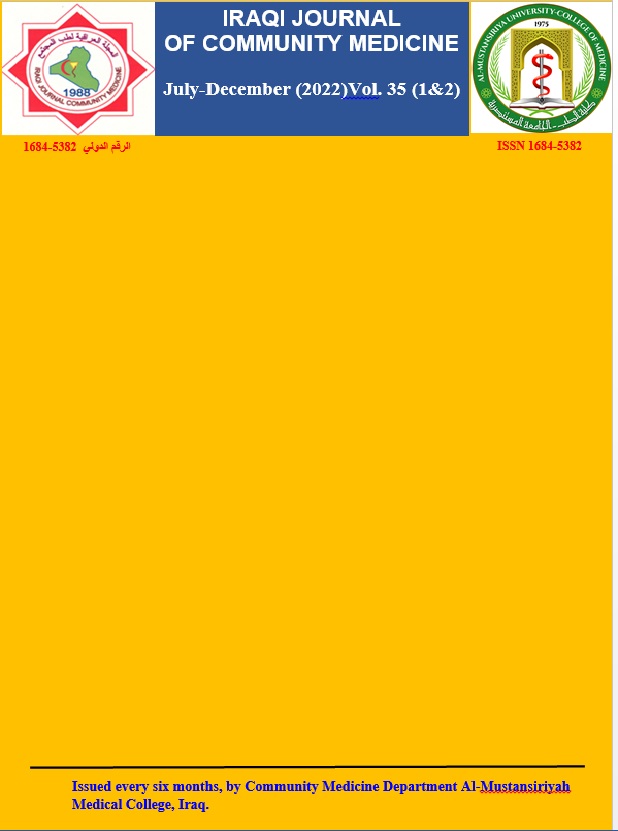Abstract
Background: As primary health care is a sub-system of the national health system; its evaluation would reveal the function state and condition of the system as a whole, and addresses the civilization state of the country as well.
Objective: to Figure out the degree of utilization for the beneficiary health users, with overall and detailed clients’ satisfaction with primary health care services provided.
Methods: This cross-sectional survey is a client utilization and satisfaction assessment targeting two types of clients; Females from outpatient families visiting health centers (HC), and clients outside HCs (teachers from nearby primary schools). The 17 HCs were selected by a simple random technique from all the health sectors in Baghdad. Two primary schools near each HC were chosen to study the opinion of teachers as a beneficiary group.
Results: Seventy nine percent of the clients were satisfied and 21% were unsatisfied. Although the overall satisfaction indicator was high (79%); all other satisfaction indicators have poor scores (<70%): drug use instructions (64%), patient-Dr relations (50%), consultation time and clinical exam competency (45%), waiting time (42%), and only 36% were satisfied with health education and disease explanation offered by health providers.
Fifty three percent of the inquired school-teachers use to consult the private clinics as a first choice, 16% go to a HC, 15% go to the afternoon people’s clinic, and 12% prefer the governmental hospital outpatient clinic. A minority (4%) run for by-hand treatment from the private pharmacies without a medical prescription.
Conclusion: In spite of lack of health education, incompetent medical exam, long waiting time, poor Dr-patient relations, and unclear drug instructions, health clients show an adequate overall satisfaction with health services.
Objective: to Figure out the degree of utilization for the beneficiary health users, with overall and detailed clients’ satisfaction with primary health care services provided.
Methods: This cross-sectional survey is a client utilization and satisfaction assessment targeting two types of clients; Females from outpatient families visiting health centers (HC), and clients outside HCs (teachers from nearby primary schools). The 17 HCs were selected by a simple random technique from all the health sectors in Baghdad. Two primary schools near each HC were chosen to study the opinion of teachers as a beneficiary group.
Results: Seventy nine percent of the clients were satisfied and 21% were unsatisfied. Although the overall satisfaction indicator was high (79%); all other satisfaction indicators have poor scores (<70%): drug use instructions (64%), patient-Dr relations (50%), consultation time and clinical exam competency (45%), waiting time (42%), and only 36% were satisfied with health education and disease explanation offered by health providers.
Fifty three percent of the inquired school-teachers use to consult the private clinics as a first choice, 16% go to a HC, 15% go to the afternoon people’s clinic, and 12% prefer the governmental hospital outpatient clinic. A minority (4%) run for by-hand treatment from the private pharmacies without a medical prescription.
Conclusion: In spite of lack of health education, incompetent medical exam, long waiting time, poor Dr-patient relations, and unclear drug instructions, health clients show an adequate overall satisfaction with health services.
